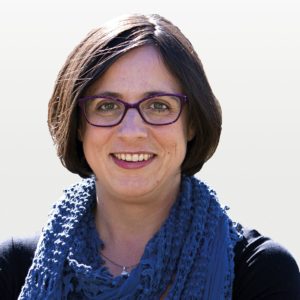Natasha
Natasha Klukach joined the St Augustine’s teaching staff in 2020. We asked her to tell us a little about herself and what teaching at St Augustine’s College of Theology means to her.
A bit about me
I’m Canadian and British, my mum having emigrated to Canada, and my Dad being Ukrainian and Belarusian, so you could say that diversity is part of my identity. The bringing together of different cultures and denominations is really important to me.
After university in Toronto and Kingston (Ontario), I worked at the National Office of the Anglican Council in Canada, then spent about six years working for the World Council of Churches in Geneva. My role took me to every region of the world, experiencing Christianity in its full expression; in many different languages, cultures and traditions. Once you’ve been exposed to that breadth of faith, your perspective is forever changed. The encounters you have, and the relationships you build, supersede differences and potential conflicts.
Building relationships was at the heart of my work then, and now I believe that it’s just as relevant and important in teaching. This is such an important time for our students, and the relationships we build with them – and that they build with each other – can be transformative. They help us to embrace difference and discover that relationships can flourish anywhere.
I hope that is something our students take away and bring to their own ministry. My years working globally were extraordinary; very few people get that opportunity. I’m very aware that with that gift comes the responsibility to take what I learned and use it in the service of the Church. To me, that seemed to lend itself best to teaching.
What attracted you to teaching at St Augustine’s?
When I left Switzerland, I moved to London to complete my doctorate at Kings College. As I began to explore teaching opportunities, to see where I might fit, Alan, our Principal, found me! After I was invited to join the staff, I was able to move close to the Abbey. The experience of living and working here confirmed this was indeed where I was supposed to be. It is a place of prayerfulness and rootedness and learning.
I was also delighted to discover a community of colleagues as talented and varied as I could wish for, and with senses of humour as quirky as my own. That’s important. We take formation and academic education very seriously – but it’s also a place where laughter is a big part of life.
The students really are so diverse, with an extraordinary richness of life experience that I end up learning as much as I’m teaching. I find teaching here is as transformative for me as I hope their learning is. Our students’ formation is not just about what we teach in the classrooms. It’s also about the community we build. The quality of relationships, mutual support and care and compassion they have for one another demonstrates the formation of community and sustaining relationships.
What are your areas of special interest?
Education for ministry should be as thorough and challenging academically as it is personally and spiritually formative. My areas of specialisation include ecumenical studies, contextual theology, and ecclesiology. I’m concerned about issues of exclusion and marginalisation and my research draws upon scholarship in black theology and post-colonialism. I currently teach theological reflection/reflective practice.
I hope that I can help students to ask themselves more questions, and become more self-aware. As human beings we are all works in progress, and education is the same; it’s never done. I hope our students complete their studies here asking more questions and wanting to study further.
What do you think St Augustine’s brings to formation?
One of St Augustine’s strengths is that it is non-residential. Each student brings their own context into the classroom, and we’re strengthened by having students rooted in their own communities and families. We can sometimes be a bit quirky and different (in good ways! I’m not sure where else would have so readily accepted my dachshund puppy, Olga, as part of the team!). The individual experiences and personalities of our staff and students are so important to who we are as a college. We teach in two very different locations, each of which brings energy to the college. Both contemplative prayerfulness and ministry amidst the hustle and bustle of life are part of the life of the church.
There’s a strong focus on formation and reflection, important for us as staff as well as students. There’s also a commitment to our evolution as human beings and our vocation. That stands out to me. A solid education with high academic standards is a given, but the formative aspect really shines at the heart of the college.


